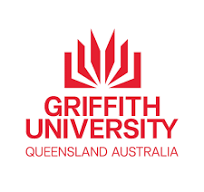
BACHELORS OF URBAN PLANNING (HONOURS) / SCIENCE


Overview
5 YEARS
YES
AU $38,000 PER YEAR
FEB, JULY, NOV
Overview
- This program gives you a unique opportunity to prepare for a career as an environmental scientist or as an urban and environmental planner. Upon graduating, you will be equipped to play an important role in bringing social and natural sciences together to find solutions for complex planning issues and problems.
- With a strong focus on practical, hands-on teaching, you'll learn state-of-the-art drawing studios and work on real industry projects. You'll be taught by academics who have a strong footing in the industry and have the opportunity to network and connect with industry professionals throughout your degree.
- What's more, you'll get the chance to undertake an industry placement, allowing you to put your skills into practice and make valuable industry contacts before you graduate.
- In your final year you will complete an independent research project under the supervision of an academic staff member. The Honours program is a critical element for students seeking a direct pathway into research, academia and employment in many consulting and government organisations who prioritise the employment of honours graduates.
Program accreditation
> The Bachelor of Urban Planning (Honours) is accredited by the Planning Institute of Australia.
Attendance information
> The Bachelor of Urban Planning (Honours)/Bachelor of Science is offered full-time on-campus at the Nathan and Gold Coast campuses.
> If you are an International student on a student visa, you must ensure that you enrol in a way that will allow you to complete your enrolment within the expected program duration as stated on your Confirmation of Enrolment (CoE).
My career opportunities
Graduate outcomes
> Depending on your major, you'll be prepared for an array of science and planning careers. You could be an environmental planner, urban planner, geographer, environmental scientist, wildlife biologists or marine biologist.
> You could find employment opportunities with all levels of government, especially state and local government agencies as well as business and industry groups, community organisations and private consulting firms working on all aspects of development and planning, environmental sustainability initiatives, environmental policy, urban ecology and biodiversity, community development, urban resilience, and environmental management. Increasingly, employers are employing science graduates in areas that require research and analytical skills, including the application of mathematics and statistics in the finance sector.
Key employment sectors*
*Councils
*Government
*Land development
*Construction industry
Potential job outcomes:
*Urban/town planner
*Strategic planner
*Regional planner
*Environmental planner
*Land development designer
*Traffic and transport planner
*Environment consultant
*Environmental scientist
*Geographer
*Wildlife biologist
*Marine biologist
* Source: Australian Government Job Outlook
Inquire Now
Entry Requirements
> Qualification: School Leaving Certificate Examination awarded by National Examinations Board
> Your entry requirements include: Grade average of 3.6 in the final year results
> Qualification: Nepalese Proficiency Certificate
> Your entry requirements include: Grade average of 89 in the final year results
> English language requirements apply to International applicants and other applicants whose previous study was undertaken in a language other than English. The minimum English language requirements for such applicants for entry to this program are as follows:
> A minimum overall band score of 6.5 on IELTS (Academic) with no sub-score of less than 6.0
OR a minimum score of 575 on TOEFL
OR an internet-based (iBT) TOEFL score of 79 (no sub-score less than 19)
OR no score less than 3+ in each skill of the ISLPR (conducted by ISLPR Language Services only)
OR a minimum overall score of 176 (no score less than 169) on C1 Advanced (formerly Cambridge Certificate in Advanced English) or C2 Proficiency (formerly Cambridge Certificate of Proficiency in English)
OR an overall score of 58 in the Pearson Test of English (Academic) with no score less than 50.
Fees
Tuition fees
> An International student pays tuition fees.
> Students are liable for tuition fees for the courses they are enrolled in as at the census date.
> The tuition fee for students who commence their program prior to 2014 is charged according to the approved program fee for the trimester in which the student commenced the program.
> FEE (INDICATIVE): $38,000 per year
Scholarships
> file:///C:/Users/LANDMASRK%20EDUCATION/Documents/Scholarships%20and%20finance%20Griffith%20UNI.html
Popular Courses
Find your perfect course
Head Office
Kamaladi, Kathmandu
Tel: +977 14542781, 9845566225
E-mail: info@landmarkedu.com
Sydney office
Rockdale, NSW 2216,
Tel: +61 415 122 814
Branch office
Tel: 056-590825
Tel: 021-590828
Tel: 977-71-591694



